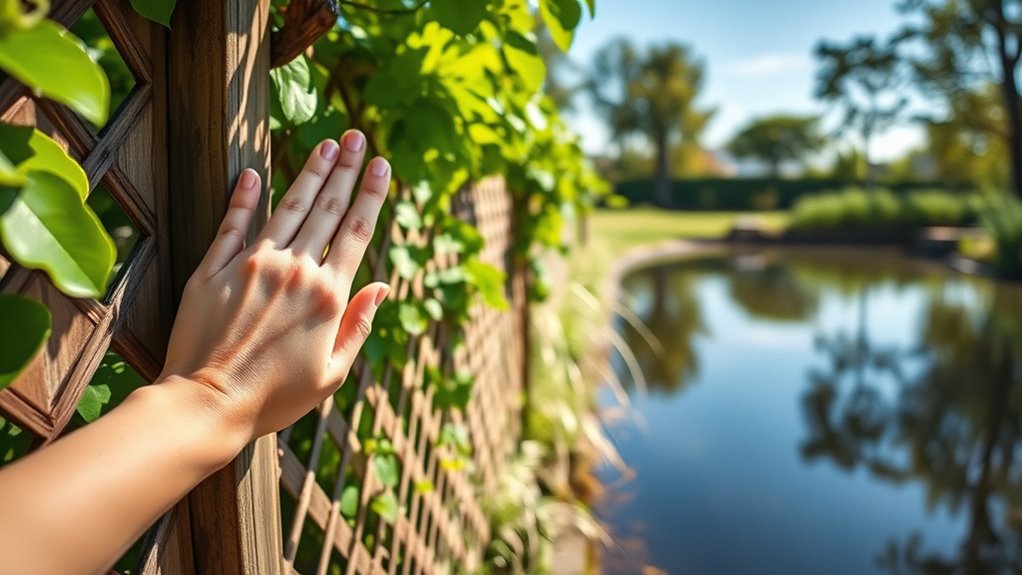Loving someone who’s a love addict requires setting clear, consistent boundaries to protect your emotional health. Clearly communicate what makes you uncomfortable, and reinforce these limits with compassion. Prioritize self-care through hobbies, rest, and social connections to maintain your mental clarity. While boundaries help prevent emotional depletion and codependency, understanding how to implement them effectively is key. If you keep exploring, you’ll discover practical strategies to maintain healthier relationships and safeguard your well-being.
Key Takeaways
- Clearly define and communicate your emotional limits to prevent boundary erosion and protect your well-being.
- Reinforce boundaries consistently with compassion to foster healthier dynamics and avoid enabling addictive behaviors.
- Prioritize self-care practices like hobbies, mindfulness, and rest to maintain emotional clarity and resilience.
- Recognize and address stress or overwhelm as signals to reassess and strengthen your boundaries.
- Support your emotional health through trusted friends or support groups to sustain boundaries and prevent codependency.

Have you ever felt overwhelmed or drained after interactions with certain people? If so, you’re not alone. When you’re trying to love someone who’s a love addict, maintaining healthy boundaries becomes essential for your own well-being. Love addiction often leads to blurred emotional limits, where your needs and feelings get overshadowed by the constant craving to fix or rescue your partner. This can leave you feeling exhausted, anxious, or emotionally depleted. Recognizing the importance of setting clear boundaries helps preserve your mental health and prevents you from falling into a cycle of codependency. It’s imperative to establish and communicate your limits, especially when your partner’s behavior tends to be compulsive or overly dependent.
Creating boundaries isn’t about pushing someone away; it’s about protecting your emotional space. Start by identifying what makes you uncomfortable or stressed in your interactions. Are there topics you avoid because they trigger anxiety? Do you feel drained after long conversations that revolve solely around your partner’s needs? These are signs that you need to reinforce your emotional limits. When you do set these boundaries, be consistent and compassionate. Remember, boundaries aren’t punishments—they’re tools to foster healthier relationships and self-respect.
Additionally, understanding how contrast ratio impacts your perception of clarity and depth in images can remind you of the importance of maintaining clear emotional boundaries for your own mental clarity. Alongside setting limits, practicing self-care strategies becomes essential. When you’re dealing with a love addict, your energy can easily be consumed by their relentless pursuit of validation or affection. To counterbalance this, prioritize activities that restore your emotional and physical health. This might mean carving out time for hobbies you love, engaging in mindfulness practices, or simply taking breaks from intense interactions. Self-care strategies also include ensuring you get enough sleep, eating nourishing foods, and staying connected with friends or support groups who understand your situation. These steps reinforce your emotional strength, making it easier to hold your boundaries without feeling guilty or overwhelmed.
Frequently Asked Questions
How Can I Tell if My Partner Is a Love Addict?
You can tell your partner is a love addict if they exhibit codependency patterns, like constantly seeking validation or feeling anxious when you’re apart. Watch for emotional triggers that lead them to cling or become overly jealous. They might struggle to set healthy boundaries or prioritize their own needs. Recognizing these signs helps you understand their behavior, so you can approach the situation with compassion and encourage healthier relationship dynamics.
What Are Warning Signs of Unhealthy Dependency?
You notice warning signs of unhealthy dependency when your partner shows codependency patterns and emotional enmeshment. They may rely heavily on you for validation, become anxious when apart, or struggle to set boundaries. You might feel overwhelmed or trapped in the relationship, with little personal space or independence. If these signs persist, it’s essential to address these issues early, seek support, and prioritize healthy boundaries to protect your well-being.
How Do I Maintain Boundaries Without Hurting My Partner?
Did you know that 80% of couples say clear boundaries improve their relationships? To maintain boundaries without hurting your partner, focus on emotional resilience and open communication. Be honest about your needs, listen actively, and reassure them of your care. Set consistent limits with kindness and understanding, showing that boundaries protect both of you and strengthen your bond. This approach fosters trust and prevents unintentional harm.
Can Love Addiction Be Cured or Managed Long-Term?
Love addiction can be managed long-term, especially when you recognize and break free from codependency patterns and emotional enmeshment. You need to seek therapy, develop self-awareness, and establish healthy boundaries. While it may not be completely cured, consistent effort helps you regain independence and emotional balance. With patience and support, you can create healthier relationship dynamics and reduce the compulsive behaviors associated with love addiction over time.
What Self-Care Strategies Support Healthy Boundaries?
Ever wondered how to maintain healthy boundaries? Prioritize self-awareness and build emotional resilience through regular self-care. Set clear limits on what you’re willing to accept, and practice saying no without guilt. Engage in activities that nurture your well-being, like mindfulness or journaling, to stay grounded. These strategies help protect your emotional health, enabling you to love without losing yourself. Are you ready to put yourself first and strengthen your boundaries?
Conclusion
Remember, maintaining healthy boundaries is your best bet for balanced, beautiful love. By setting clear limits, you protect your peace, promote self-respect, and prevent potential pitfalls. Prioritize your well-being without wavering, and practice patience and persistence. Love with limits, but never lose yourself in the process. Because when boundaries bolster your bond, both hearts heal and grow. Stay steadfast, stay strong, and let your boundaries be your beacon in loving wisely.









